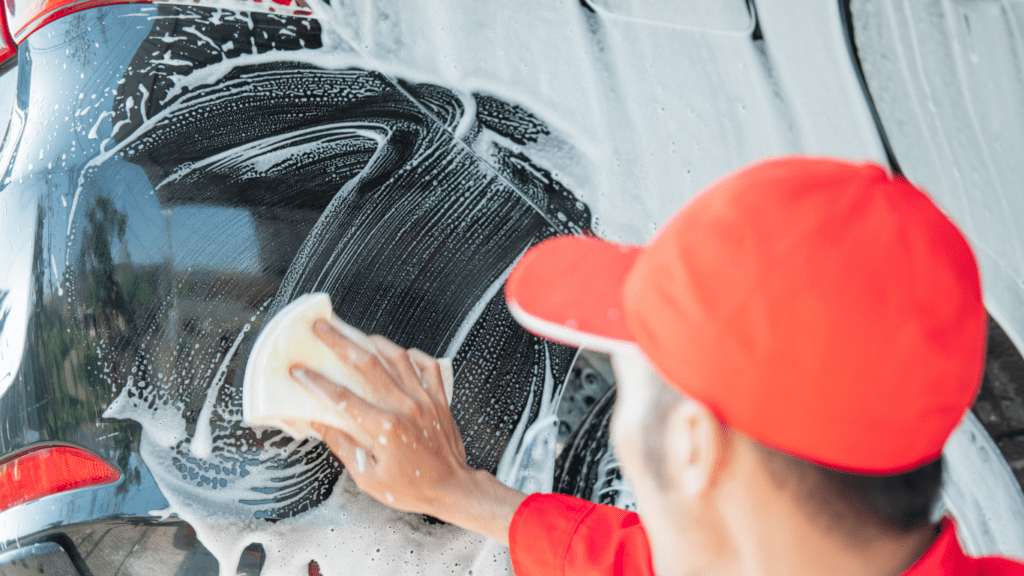Importance of Car Maintenance
Regular car maintenance is critical for a vehicle’s performance and longevity. By addressing minor issues early, you can avoid costly repairs and ensure a safer driving experience.
Extending Vehicle Longevity
Car maintenance plays a key role in extending the lifespan of a vehicle. Essential tasks like oil changes, air filter replacements, and fluid level checks maintain engine health and efficiency.
For example, replacing the oil every 5,000 miles reduces engine wear. Proper tire maintenance, like regular rotations and alignments, ensures even wear and prolongs tread life.
Timely maintenance prevents small issues from escalating, allowing the car to function smoothly for years.
Improving Safety
Maintaining a vehicle improves driver and passenger safety. Well-maintained brakes, for instance, provide better stopping power, reducing the risk of accidents.
Changing brake pads when worn minimizes the chance of brake failure. Checking and replacing tires with proper tread prevents blowouts and enhances grip on the road.
Regularly inspecting lights and signals ensures visibility and communication with other drivers. Thus, regular maintenance mitigates risks associated with mechanical failures and improves overall road safety.
Types of Car Maintenance Services

Regular car maintenance includes several essential services to ensure a vehicle functions properly and safely.
Routine Oil Changes
- Changing engine oil consistently keeps the engine clean and ensures efficient performance.
- Fresh oil lubricates engine components, reducing friction and wear.
- Most vehicles typically require oil changes every 3,000 to 5,000 miles.
- Following the manufacturer’s recommendations for oil type and change intervals prevents engine damage and improves fuel efficiency.
Brake Inspection and Service
Routine brake inspections identify worn components before they fail. Mechanics check brake pads, rotors, calipers, and fluid levels. Replacing worn brake pads and refilling brake fluid ensures effective braking, reducing the risk of accidents.
Typically, brake inspections should occur every 10,000 to 15,000 miles or whenever there are signs of brake issues like squeaking or decreased responsiveness.
Tire Maintenance and Rotation
Proper tire maintenance enhances vehicle handling and extends tire life. Regular tire rotations, usually performed every 6,000 to 8,000 miles, ensure even tire wear.
Alignment checks and balancing keep the tires aligned and prevent uneven tread wear. Adequate tire pressure, which should be checked monthly, reduces fuel consumption and enhances safety by providing better traction and control.
Economic Benefits of Regular Maintenance
Regular car maintenance services offer significant economic advantages. These services contribute to long-term savings and enhanced vehicle performance.
Reducing Long-Term Repair Costs
Routine maintenance reduces repair expenses over time. Regular checks help spot issues early. For example, replacing a worn-out timing belt prevents engine damage. Handling minor repairs early costs less than major repairs later, saving money in the long run.
Improving Fuel Efficiency
- Maintained vehicles use fuel more efficiently.
- Clean air filters and properly inflated tires enhance fuel economy.
- Changing oil regularly prevents engine sludge, improving engine performance.
Regular maintenance results in fewer trips to the gas station, saving fuel costs.
Environmental Advantages
Regular car maintenance services significantly benefit the environment. By addressing key aspects of the vehicle’s performance, we can reduce our ecological footprint.
Lower Emissions
Well-maintained cars emit fewer pollutants. Replacing air filters ensures engines burn fuel more efficiently, reducing harmful emissions like carbon monoxide and hydrocarbons.
Early detection of issues like exhaust leaks or malfunctioning sensors also helps keep emission levels in check.
Promoting Sustainable Practices
Regular maintenance encourages sustainable vehicle use. Properly inflated tires and timely oil changes optimize fuel consumption, decreasing our overall carbon footprint.
Additionally, using eco-friendly materials for parts and fluids further supports green initiatives, ensuring our practices align with environmental standards.

